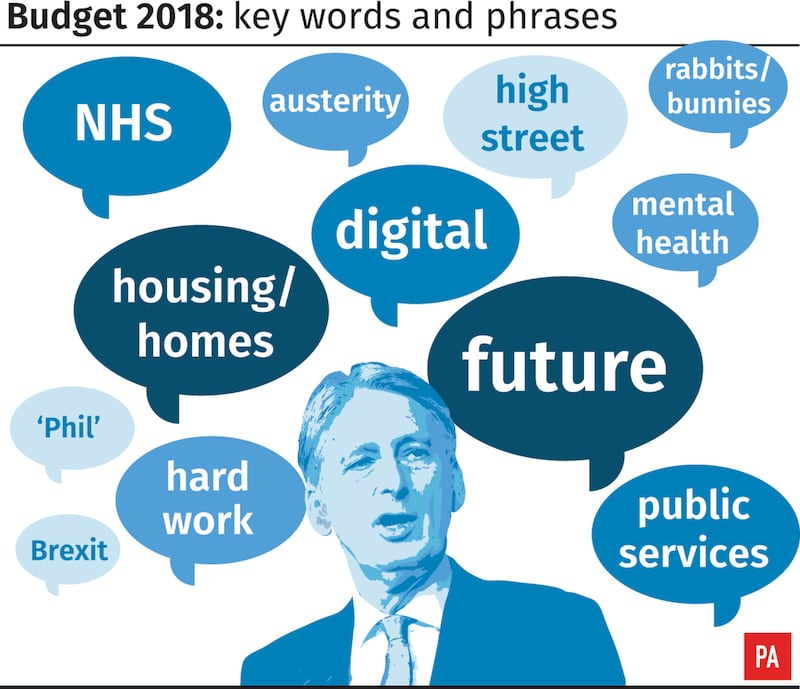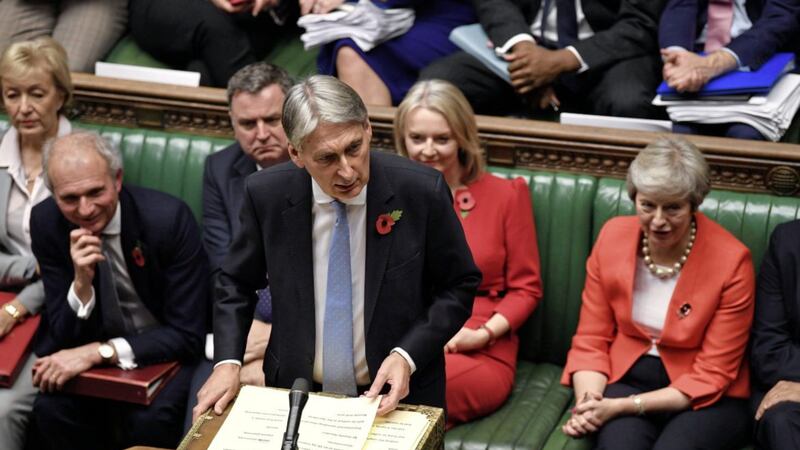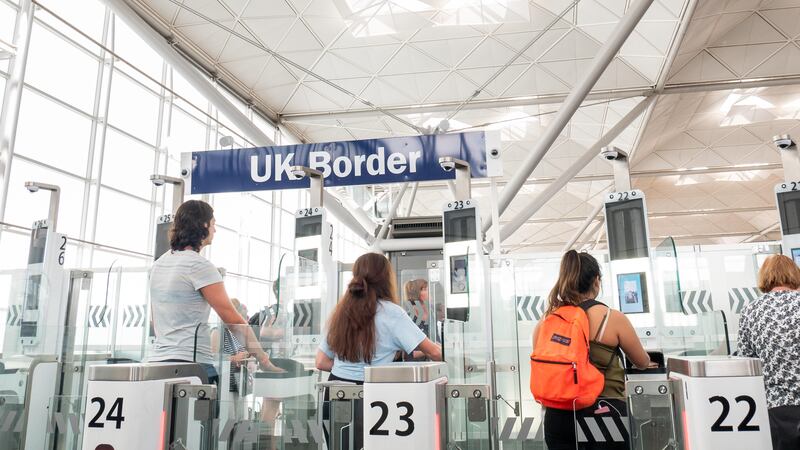PERHAPS a rather benign sidestep from tradition, Chancellor Philip Hammond’s autumn budget is the first to be announced on a Monday since that of Selwyn Lloyd in 1962.
Back then it was accepted Lloyd would deliver an unpopular budget, but this time around, with Brexit on the cards, unpopular measures have largely been deferred. In many ways, the Budget could be summarised as 'spend now tax later'.
Northern Ireland is set to benefit by over £320m over the next two years from April 2019. Meanwhile, the Belfast City Region Deal is set to receive up to £350m, around £100m below what had been hoped for.
In addition, negotiations are expected to open for a Derry and Strabane City Region Deal. These are encouraging developments, though hindered by the lack of a functioning Executive. The on-going decision paralysis is arguably more of a concern than funds. Delivery is crucial.
Read More:
- North given close to £1bn in Budget sweeteners (and they're all claiming the credit)
- Belfast City Deal 'could transform economy' - but funding falls £100m short
- Chancellor sprinkles ‘fiscal confetti’ on taxpayers
The UK high street received a package of measures to facilitate retailers, such as cutting business rates by one third for two years from next April. This doesn’t apply to Northern Ireland, but Belfast city centre retailers will benefit from a £2m cash injection in the aftermath of the fire at the Bank Buildings.
Competition from tech giants has adversely affected many high street retailers. The Exchequer has been impacted negatively too by the growth these companies and the lack of tax revenue stemming from them. This has led to the planned introduction of a new digital services tax – a two per cent tax on the revenues they earn from UK users.
“We will now introduce a UK Digital Services Tax.
— HM Treasury (@hmtreasury) October 29, 2018
...It will be carefully designed to ensure it is established tech giants – rather than our tech start-ups - that shoulder the burden of this new tax.” #Budget2018 pic.twitter.com/h2hKxMrO1Y
The Chancellor talked of ending austerity and highlighted this was not hinged on raising the tax bills of working families. A number of measures were announced to help people keep more of the money they earn, including an almost 5 percent rise in the National Living Wage from next year (though many businesses in Northern Ireland, for example those in the hospitality industry, will find this challenging).
Philip Hammond announced a tax cut in the shape of raising the Personal Income Tax threshold to £12,500 and the higher rate (40 per cent tax) to £50,000.
Read More:
- Welcome £300m boost for shared and integrated education in the north
- Beer duty freeze is welcome news for north's hospitality industry
- Billion pound Budget - but Belfast City Deal falls short
- Spend now, tax later…
Once again, the Chancellor also attempted to sell the benefits of a freeze on fuel duty for the ninth consecutive year. It’s worth noting that petrol and diesel prices have increased by 10 per cent and 11 per cent respectively since the last March budget. Higher prices are yielding increased revenues for the Exchequer. Therefore, negating the need to increase fuel duty.
The last Monday budget in 1962, as alluded earlier, was unpopular. Attention focused on the increase tax on confectionery items such as sweets, soft drinks and ice cream, a measure dubbed by many as a tax on children’s pocket money at a time when the Chancellor himself was only six years old.
Conversely, Philip Hammond has steered clear of unpopular measures. Arguably, his most popular message was “austerity is coming to an end.”
But what does this mean?
Just like “Brexit means Brexit”, this is wide open to interpretation.

It is noted that public spending is set to rise again in real terms by 1.2 per cent per annum on average in the next few years. However, if you strip out the gains for health and defence other areas of public spending tell a different story.
It is difficult to see how we are going to reach the end of austerity from a public spending perspective without entering a new era of higher taxation.
Given the looming Brexit negotiations such unavoidable taxation measures have been withheld for another day. In the case of a no-deal Brexit, this day may come around sooner than expected.
:: Richard Ramsey is chief economist at Ulster Bank








